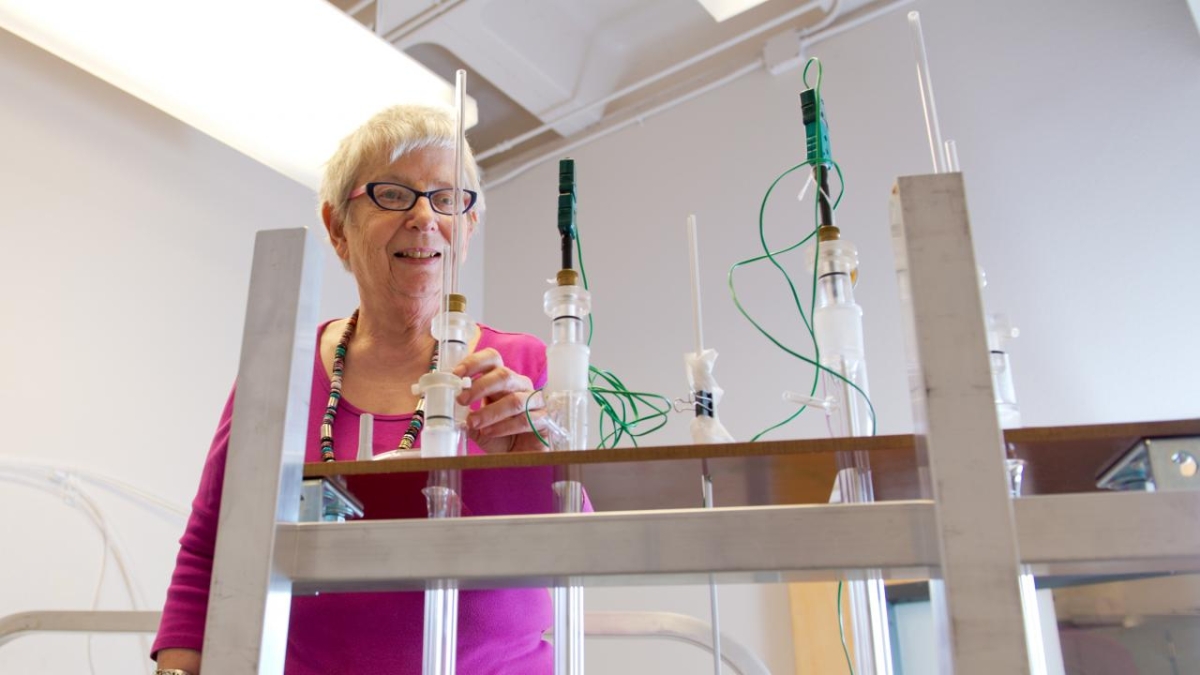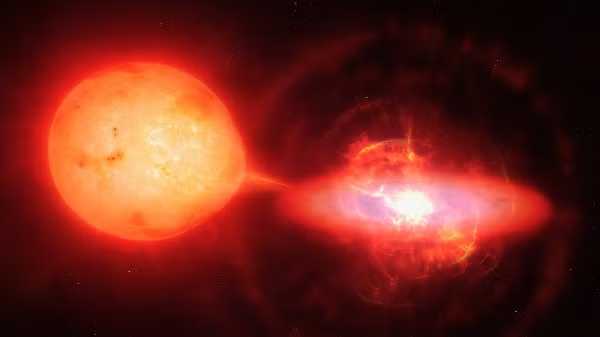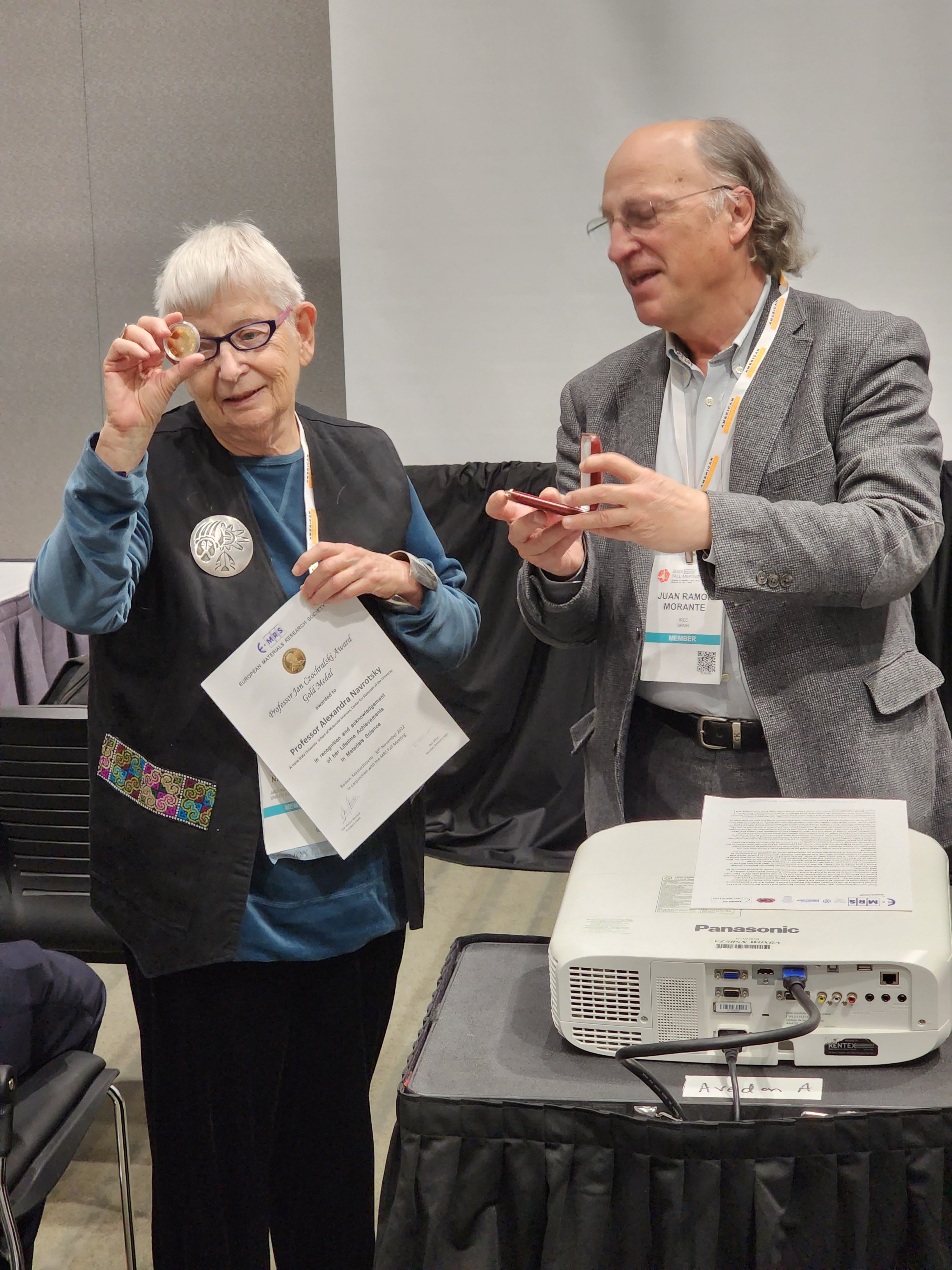ASU Regents Professor honored with materials science award

Arizona State University Regents Professor Alexandra Navrotsky, of the School of Molecular Sciences and the School for Engineering of Matter, Transport and Energy in the Ira A. Fulton Schools of Engineering, has been honored with the European Materials Research Society Jan Czochralski Award. Photo by Mary Zhu
ASU’s Alexandra Navrotsky has been awarded the Czochralski Medal from the European Materials Research Society, their highest honor for lifetime research achievement in materials science.
The medal was to be given at the society's meeting in Warsaw, Poland, in 2020, but that meeting was canceled due to COVID-19. It was instead presented at the society's recent meeting in Boston by European Materials Research Society President Juan Ramon Morante in a ceremony during a session on modern materials thermodynamics, which was organized by Navrotsky and colleagues.
The Czochralski Award includes the Czochralski Gold Medal and a commemorative diploma, both of which were presented to Navrotsky.
Professor Jan Czochralski was one of Poland’s most famous scientists. In 1916, after serendipitously dipping a pen into a small crucible of molten aluminum instead of an inkwell, and withdrawing it, he noticed that a thread of aluminum hung from the nib. The thread of aluminum turned out to be a single crystal, and so the Czochralski method for single crystal growth was born. His method is currently used for the growth of single crystals of germanium and silicon, which are the basis of a vast range of modern electronic equipment and devices.
The award is presented every year to a scientist based on their achievements in advanced materials science. Other eminent American awardees include Mildred Dresselhaus, a physics professor emerita from MIT, in 2010, who also received the 2012 Enrico Fermi Award and the U.S. Presidential Medal of Freedom in 2014. Distinguished Harvard Professor George Whitesides also received the award in 2014.
Alexandra Navrotsky receives the Czochralski Medal from European Materials Research Society President Juan Ramon Morante.
Alexandra Navrotsky is the director of the Navrotsky Eyring Center for Materials of the Universe and a Regents Professor in the School of Molecular Sciences and School for Engineering of Matter, Transport and Energy at Arizona State University. She is also an affiliated faculty member of the School of Earth and Space Exploration.
A member of the National Academy of Sciences, Navrotsky, who began her academic career at ASU in 1969, left in 1985 for Princeton University and officially returned on Oct. 1, 2019, to head the new one-of-a-kind Center for Materials of the Universe.
“Professor Navrotsky and her group are world leaders in many areas of solid state science, from microscopic features of structure and bonding to macroscopic thermodynamic behavior in minerals, ceramics and other complex materials,” said Professor Tijana Rajh, director of the School of Molecular Sciences. “I am very happy to see her recognized with this prestigious and well-deserved award.”
“Receiving the E-MRS Jan Czochralski Award was an utter surprise and is a great honor,” Navrotsky said. “Czochralski was a pioneer in chemical engineering; Poland has a great tradition in catalysis and materials science.”
By advancing high- and low-temperature reaction calorimetry as a foundational research tool, Navrotsky has contributed to a broad spectrum of applications, from mineral thermodynamics to ceramic processing to zeolites.
Navrotsky has published more than 900 scientific papers and received many honors, including the Harry Hess Medal, the Goldschmidt Medal and the Kingery Award. She serves on numerous advisory committees and panels in government and academia, promoting collaborative research across disciplines and institutions.
“In science, as in life, every day is a new adventure!” Navrotsky said.
More Science and technology

Stuck at the airport and we love it #not
Airports don’t bring out the best in people.Ten years ago, Ashwin Rajadesingan was traveling and had that thought. Today, he is…

ASU in position to accelerate collaboration between space, semiconductor industries
More than 200 academic, business and government leaders in the space industry converged in Tempe March 19–20 for the third annual…

A spectacular celestial event: Nova explosion in Northern Crown constellation expected within 18 months
Within the next year to 18 months, stargazers around the world will witness a dazzling celestial event as a “new” star appears in…


